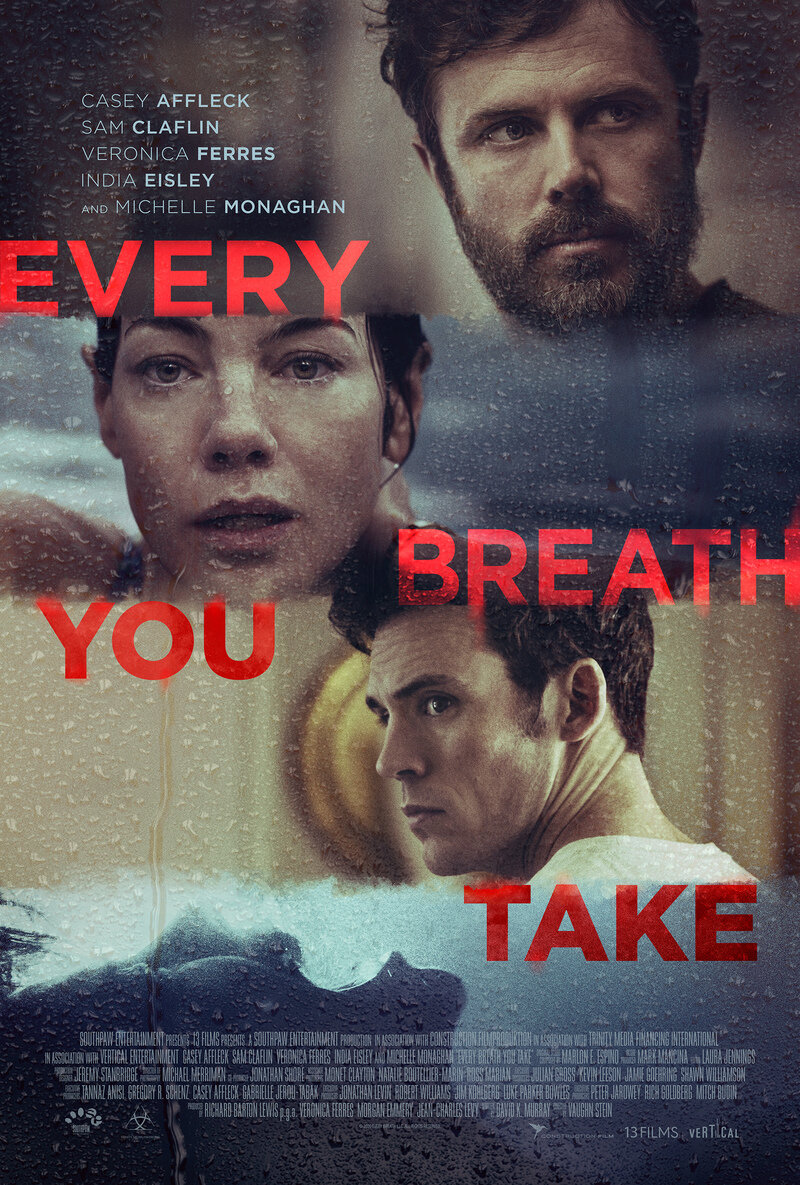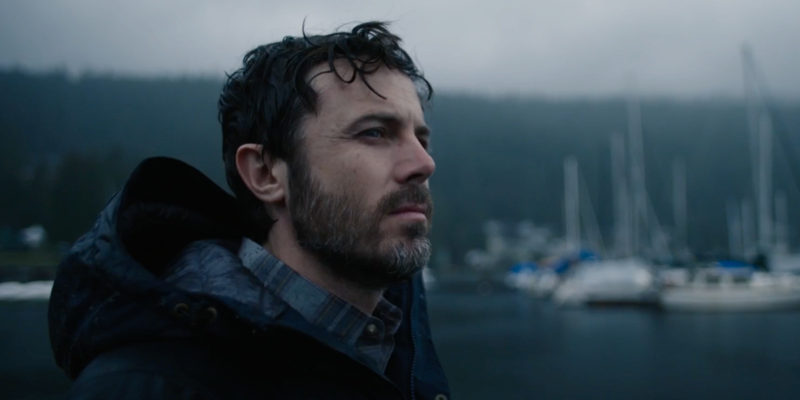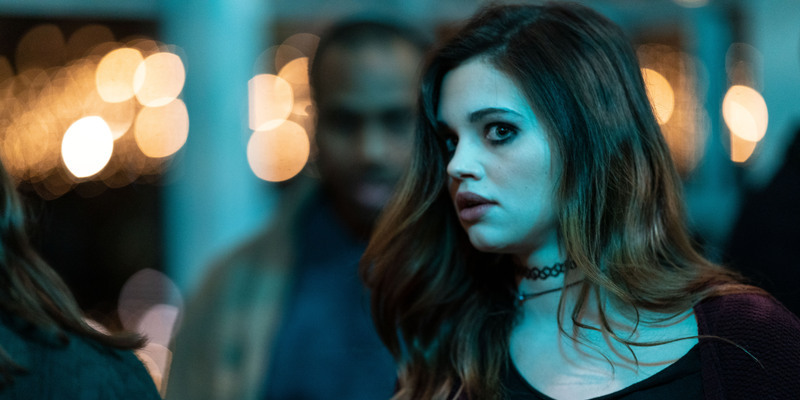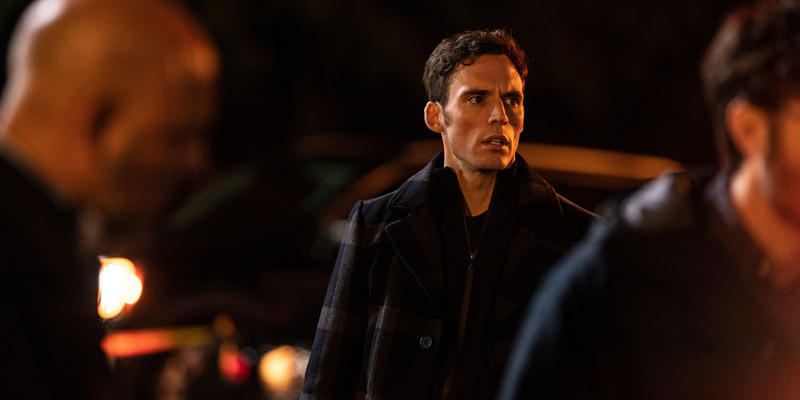
Review by
Eric Hillis
Directed by: Vaughn Stein
Starring: Casey Affleck, Sam Claflin, Michelle Monaghan, Inid
Eisley, Veronica Ferres

Along with
Manchester by the Sea
and
The World to Come, director Vaughn Stein's old school psycho thriller
Every Breath You Take completes a trilogy of movies in
which Casey Affleck plays a father grieving for a lost child. In
a prologue we see his wife, Grace (Michelle Monaghan), get into a
car accident that claims the life of their young son. In what feels like a nod to arguably the greatest ever movie about
losing a child, Nanni Moretti's
The Son's Room, Affleck's character, Philip, is a psychiatrist. He even sports a
beard and tasteful pullovers like Moretti, and just like Moretti's
shrink, he hides away from his own psychological problems by treating
his patients while refusing to have any meaningful conversations with
Grace.

Philip oversteps ethical boundaries with one patient, a pretty young
woman in an abusive relationship, by sharing his own grief with her.
This doesn't stop her from committing suicide however. Listed as her
doctor, Philip is called to the scene of her death, where he meets her
brother, James (Sam Claflin), recently arrived from England. When
James later turns up at Philip's home to return a book he had lent to
his late sister, Grace invites him in for dinner. So begins James'
campaign of ingratiating himself into Philip's family, and soon he's
dating his teenage daughter Lucy (India Eisley) and enjoying
afternoon romps with Grace. When the faculty where Philip is employed as
a lecturer begins receiving anonymous letters complaining about Philip's
professional behaviour, he begins to suspect James of seeking revenge
for his sister's death.
Every Breath You Take owes much to the thrillers of the
'90s. It's even set in the Pacific Northwest, rivaled only by San
Francisco as the most popular setting for such movies. This gives it a
rainswept, overcast aesthetic that seems like an externalising of the
grief consuming Philip and Grace. Inflicting such a toll on its
protagonists is an odd choice by screenwriter David Murray. It's
likely there to give more depth to the proceedings, but it all feels a
little heavy for what is essentially a run of the mill thriller in the
Cape Fear mould. Stein visualises Philip and Grace's grief
with shots of the former watching hockey matches that his boy might have
played in, while Grace indulges in that worn out trope of a troubled
woman submerging herself in water, be it a bath or the luxurious
swimming pool that adjoins the family's plush, modernist home.

Claflin's James is clearly a cad, and likely has a few loose screws,
but Affleck's Philip is so hard to warm to that it's difficult to feel
much sympathy when he ends up being cucked as both a husband and father
by this handsome stranger. Affleck's performance here almost feels like
a parody of the mopey shtick he's become known for recently, while
Claflin oozes creepy charisma (wouldn't he make a good James Bond?). A
more interesting version of this movie might have gone full Pasolini's
Teorema and had Philip himself also seduced by James, but
this is a movie that plays its thrills straight in every sense of the
word.
There's a point where Philip issues some advice along the lines of "If
you love someone you need to make them feel it." It's advice ignored by
Stein and Russell, as their film rarely makes us feel much of anything.
Instead it relies on cheaply written scenes in which Philip twigs what's
going on and verbally expresses his suspicions to whoever happens to be
in the room at the time. The movie's climax is so haphazard and rushed,
it feels as though the scriptwriter reached an allotted word count and
needed to wrap things up as quickly as possible.

For all its flaws, there's something of a nostalgic novelty factor to
Every Breath You Take. It's so rare to see stars of the calibre of Affleck and Claflin
working in the thriller genre, which has now been largely relegated to
the Lifetime Network, that the movie keeps you amused to a degree simply
because it's a reminder of a time when Hollywood made genre movies for
adults. But nostalgia only gets you so far, and as the predictable plot
unspools you'll likely be reminded that with a few exceptions, those
'90s thrillers simply weren't very good.


